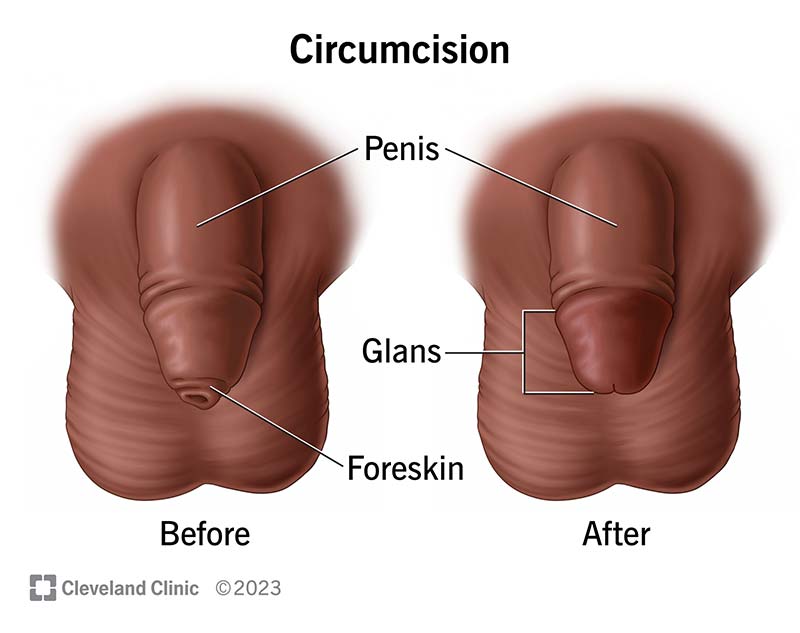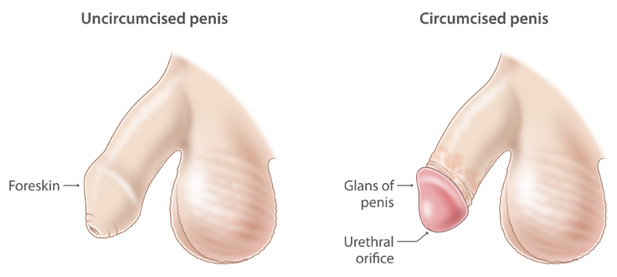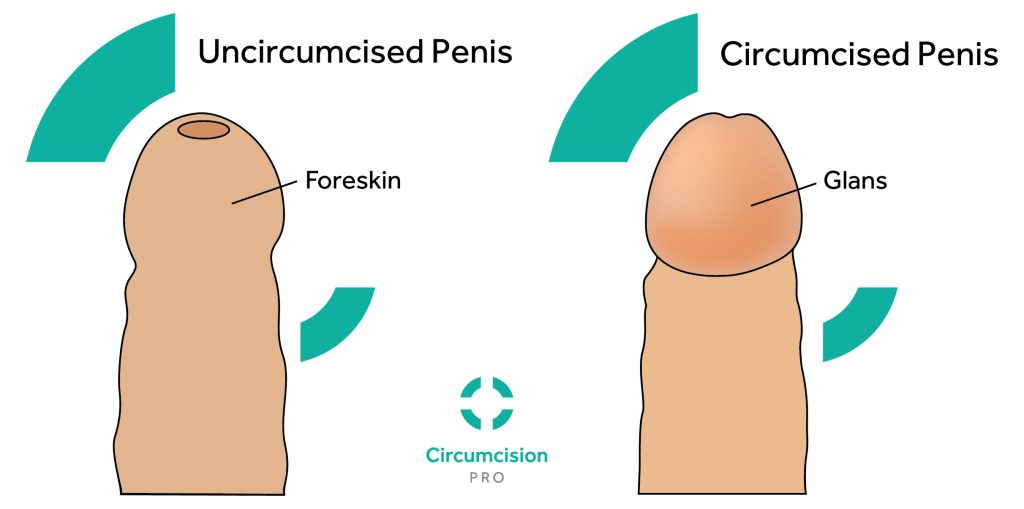Uncircumcised vs Circumcised
Is there really a difference?
The main difference between a circumcised (cut) and uncircumcised (uncut) penis is the presence of foreskin around the head of the penis. Although it really comes down to personal preference, the presence or lack thereof — of foreskin does have some impact on your hygiene and overall health.

Does it affect penis size?
Uncircumcised (Uncut): A foreskin can make your penis look slightly bulkier when it’s flaccid. During an erection, the foreskin retracts and almost disappears, so it won’t affect how big your penis looks when it’s erect.
Circumcised (Cut): Your penis size is based on your genes, environment, and overall health. All determine the phenotype, or physical expression, of your penis. Penis size is also based on blood flow to the penile tissues. Removing a layer of skin tissue — the foreskin — doesn’t have any impact on other penile tissues or how big your penis appears when erect. However, it may have slightly less “bulk” when it’s flaccid


Does it affect your health?
Uncircumcised: Men who are uncircumcised can retain moisture between their penis and foreskin. This creates the ideal environment for bacteria to grow, and can increase the risk of infection not only for men, but for their sexual partners.
Circumcised: Circumcision on the other hand reduces the risk of developing a urinary tract infection(UTI), which include infections of any part of the urinary system, such as the bladder. Not only this but some research suggests that circumcision is effective in reducing STD transmission rates, including HIV, herpes and genital ulcers. It has even been thought to lower the risk of prostate cancer.
Does it affect penis size?
Uncircumcised
Men who are uncircumcised can retain moisture between their penis and foreskin. This creates the ideal environment for bacteria to grow, and can increase the risk of infection not only for men, but for their sexual partners.
Circumcised
Circumcision on the other hand reduces the risk of developing a urinary tract infection(UTI), which include infections of any part of the urinary system, such as the bladder. Not only this but some research suggests that circumcision is effective in reducing STD transmission rates, including HIV, herpes and genital ulcers. It has even been thought to lower the risk of prostate cancer.

Does it affect penis size?
Uncircumcised: penis might look bigger due to addition of the foreskin when it is flaccid. However, the foreskin does not affect the size when the penis is erect.
Circumcised: Circumcision slightly affects penis size because it results in a loss of about 30%-50% of the penile skin. So, when the penis is flaccid, it will appear thinner and shorter because the foreskin would have overhung around it.
Impact of hygiene
Uncircumcised: Smegma is a natural lubricant that keeps the penis moist. It is found on the head of the penis and under the foreskin. If it builds up, it can become a breeding ground for bacteria leading to balanitis. Therefore, . If underneath of the foreskin is not properly or correctly cleaned, smegma may gather. Simply pull the foreskin back away from the end of the penis as far as is comfortable, wash the head of the penis and the inside fold of the foreskin and rinse well with water.
Circumcised: Circumcision makes it easier to keep the end of the penis clean. A circumcised penis can be cleaned gently with warm water.

Does it affect your risk of infection?
Uncircumcised: uncircumcised penis is prone to certain infections including those that are sexually transmitted. Accumulation of smegma beneath the foreskin can also lead to bacteria build up. The risk of urinary infections in the first year is low, but these infections may be up much more times as common in uncircumcised baby boys. Good hygiene should be practiced.
Circumcised: Circumcision may be used to treat pathological phimosis and chronic or recurrent urinary tract infections. The World Health Organization promotes circumcision to prevent female-to-male HIV transmission in countries where HIV is common. The finding that circumcision significantly reduces female-to-male transmission has prompted medical organizations to promote circumcision as long as the program includes informed consent, confidentiality and absence of coercion.
Does it affect fertility?
Uncircumcised:In cases where the foreskin is too tight around the penis head, infertility can occur. The foreskin can be removed eliminating the key factor contributing to infertility. Although, uncircumcision has no effect on sperm production.
Circumcised: It has been concluded that circumcision can help with infertility in males suffering from two specific diseases; phimosis and balanitis. They can both be cured by having the penis circumcised.
